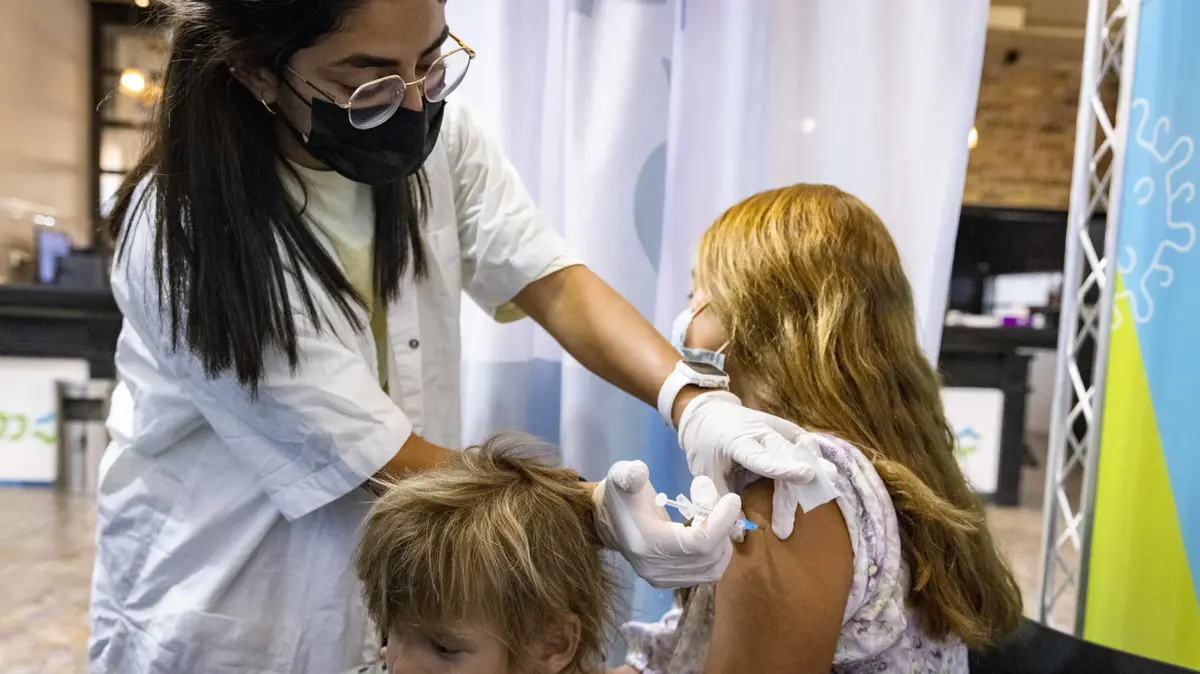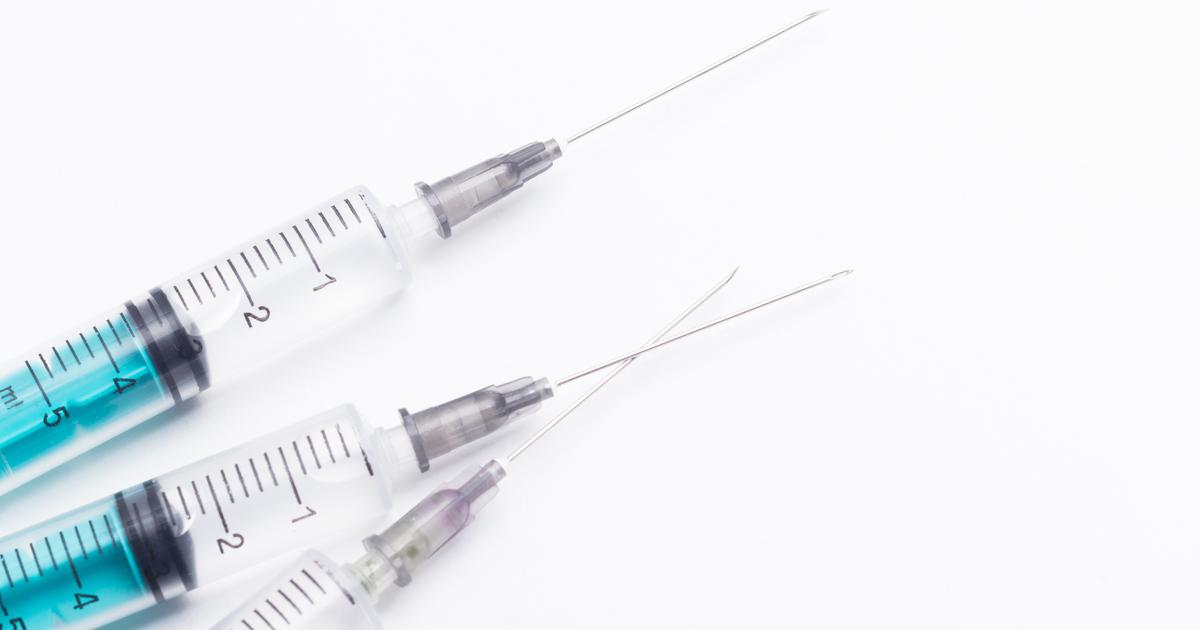Enlarge image
In more affluent countries, vaccine goes to the trash, African countries are now hoping for donations - but there, too, cans have to be thrown away
Photo: Robert Bonet / NurPhoto / Getty Images
When the third wave swept across his country at the end of April, Marco Blanker was getting ready to do his part to fight the pandemic. The Dutch doctor from Zwolle organized the vaccine and invited 250 elderly patients to his practice. But only 72 came from those invited. Dozens of vials of vaccine ended up in the trash - a scandal for Blanker. In the Netherlands, people's willingness to get vaccinated has fallen rapidly, as the doctor observes - especially with AstraZeneca. "We assume that general practitioners and pharmacies alone still store up to 200,000 AstraZeneca vaccine doses in their refrigerators," he says.
That is why Blanker started “Prullenbak Vaccin” together with colleagues.
On the website, the Dutch can see where vaccine is currently available.
The card is so well filled that Blanker and his colleagues would now like to help those who want to be vaccinated in other countries.
"If the cold chain is adhered to, the unused ampoules could also be collected again and transported to Africa," he says.
A special shipping company already offered their support - but the Dutch government opposed the idea, according to the doctor;
she cited legal and logistical problems.
"Instead, unused vaccine should be destroyed," says Blanker with resignation.
But he has not yet given up hope: "Vaccination is a human right."
The reality is currently different: Millions of vaccine doses worldwide are expiring and have to be disposed of - while vaccines are lacking in many countries. There is no central database documenting global vaccine loss, but data from individual countries and estimates are alarming.
According to the WHO, a million AstraZeneca cans worldwide could become unusable by the end of August because their shelf life has expired. Nearly 700,000 doses of vaccine went to the trash in Georgia alone this year; Experts warn that vaccination doses will soon expire in the USA, with which around 13 million people could be vaccinated against corona. Poland had to dispose of almost 73,000 cans from various manufacturers by the end of July; in Hong Kong, surplus stocks from Sinovac and Biontech / Pfizer are piling up, which could expire unused. According to SPIEGEL information, every tenth vaccine dose in Germany currently remains in the doctor's office, around 3.2 million doses are stored there. Vaccine that is lacking in other countries.
Around a third of the world's population has now received at least one dose of a Covid 19 vaccine from the “Our World in Data” platform - but in poorer countries only 1.4 percent of people have so far been vaccinated at least once.
And in Nigeria, for example, only 0.7 percent of the population is fully vaccinated - in Haiti just 0.01 percent.
The international Covax initiative
from the World Health Organization WHO and the global vaccination initiatives Gavi and Cepi has not yet managed to set up a fair, global vaccination system: to this day, vaccine mainly flows to the countries where the money flows. The majority of the almost five billion doses administered worldwide were inoculated in wealthier countries, many countries negotiate directly with manufacturers bypassing Covax and conclude bilateral agreements. By the end of 2021, the global vaccination campaign aimed to fund two billion doses for the most vulnerable populations in low- and middle-income countries - around 209 million have been delivered so far.
Manufacturers like Moderna have announced that they will ramp up production and many states want to donate excess cans to poorer countries to alleviate the bottlenecks.
But once vaccine has been distributed to individual states and municipalities within a country,
it is usually complicated and expensive to send it back to a central point - and then abroad.
On the other hand, legal obstacles also play a role: The secret contracts with the manufacturers are apparently mostly
designed in such a way that superfluous vaccines cannot simply be given abroad.
The lawyer Persad Govind of the University of Denver has only limited conviction of these arguments: He considers collecting the cans and sending them abroad to be "not that easy, but not impossible." He believes it is unlikely that manufacturers would complain about this - that would be difficult for companies for PR reasons alone. States should at least try to pass vaccinations on to neighboring countries before they expire. "And they should negotiate such agreements in advance," says Govind.
The US has announced that it will donate a total of 500 million cans; the Washington government has already creatively circumvented contractual clauses by "giving" vaccinations to Canada and Mexico. Israel has also reached an agreement with South Korea: According to this, the Asian country will receive 700,000 doses of the Biontech / Pfizer vaccine with an expiry date soon - and Israel in return will receive vaccinations from a future delivery to Seoul.
According to the federal government, Germany wants to give 30 million vaccine doses from its own stocks to developing countries by the end of the year;
80 percent of it via Covax, the rest is to be distributed via bilateral agreements to countries such as Namibia, Ukraine, Armenia and the Balkan countries.
1.3 million cans of AstraZeneca have already been handed over to Covax for delivery in Afghanistan, Ethiopia, Sudan, Tajikistan and Uzbekistan.
Great Britain has also announced nine million doses of vaccine donations and has already made some deliveries.
There was great joy at Jomo Kenyatta International Airport in Kenya's capital Nairobi last Tuesday: Just before 10 p.m., 407,000 doses of AstraZeneca vaccine from Great Britain were unloaded from the hold of a KLM machine.
Politicians and photographers were ready to receive the precious cargo.
"I am glad that we can do our part," said the British Deputy Ambassador on site.
But there is a catch: According to SPIEGEL research, the cans that have just arrived expire at the end of September - not much time to bring the goods to remote regions, mobilize those willing to vaccinate and build the necessary infrastructure.
"So far, Kenya has managed to inoculate everything in time," says Rudi Eggers, Kenyan country director of the WHO.
"The government would like to insist on a longer shelf life, but currently the country has to take what it gets." In Kenya, just three percent of the population are vaccinated. Like many African countries, Kenya relied on Covax for a long time in vain, hoping above all for the AstraZeneca vaccine produced in India. But in the meantime the deliveries from there came to a complete standstill - India needed the cans itself because the Delta variant was raging in the country.
In the meantime, vaccine donations are again arriving in Kenya from several countries. However, the WHO had already drawn attention to the problem of the short shelf life in mid-July. The head of the African Union's vaccination campaign, Ayoade Alakija, even called the deliveries a "Trojan horse". By the beginning of August, 470,000 cans had to be destroyed in Africa because they had exceeded their shelf life. Liberia, for example, only had 15 days to inoculate tens of thousands of cans, according to media reports, and in the end 27,000 had to be thrown away. "We didn't have enough time," said Health Minister Wilhelmina Jallah.
In addition to the approaching expiry date, there is another problem: Conspiracy myths about vaccines are widespread in many African countries.
Videos of puncture sites that allegedly become magnetic are circulating on WhatsApp.
Vaccination kills the old and makes the young sterile, many claim.
In contrast, only awareness campaigns help - in Kenya, teams go from house to house to provide information about the corona vaccination.
The Kenyan government also urged all officials to get vaccinated - otherwise disciplinary consequences could be threatened.
"But it's a vicious circle," says health expert Catherine Kyobutungi. "Nobody can plan when the next delivery will come, so nobody knows when and how many people need to be mobilized." Nothing is more frustrating than encouraging someone to vaccinate - and then running out of vaccine for them.
"The situation is more likely to get worse than better," warns Javier Guzman, director of global health policy at the US think tank Center for Global Development. The manufacturers' capacities could only be ramped up to a certain extent, the vaccine dose donations were too small to meet the needs of developing countries - and the debate about third-party vaccinations worried the experts. "Wealthy countries will now use their supplies primarily for booster vaccinations for their own populations and will also vaccinate younger and younger children," he believes.
According to Guzman, only changes on the manufacturer side could resolve the bottlenecks in the long term.
In order to accelerate vaccine production worldwide, governments and international organizations would have to influence manufacturers and also create incentives for them to conclude more license agreements with partners in developing and emerging countries who could produce vaccines locally.
"At the moment, that is entirely up to the manufacturers," says Guzman.
"But they're not interested, because they don't make a profit if they produce vaccine for poorer countries and sell it there."
Pharmaceutical companies and many industrialized nations have so far resisted the proposal of an alliance led by India and South Africa to suspend patent protection for corona vaccines.
German politicians are also critical of the project;
no quick agreement is in sight.
In the short term, according to Javier Guzman, it is important to use existing, suitable production facilities for vaccine production - as is the case with the US pharmaceutical company Merck, which failed to develop vaccines itself, but has now retrofitted facilities for the production of Janssen vaccines.
Similarly, the capacities of the Tübingen-based pharmaceutical company Curevac could be switched to other vaccines in the future - Curevac's own vaccine CVnCoV is experiencing setbacks.
Guzmann also believes that the announced establishment of the Tech Transfer Hub in South Africa, which is to promote the local production of mRNA vaccines, is a step in the right direction.
"Everyone has to lend a hand now," he says.
"Because the pandemic will keep us busy for years and the next variant is sure to come soon."
This contribution is part of the Global Society project
Expand areaWhat is the Global Society project?
Reporters from
Asia, Africa, Latin America and Europe
report under the title “Global Society”
- on injustices in a globalized world, socio-political challenges and sustainable development.
The reports, analyzes, photo series, videos and podcasts appear in the international section of SPIEGEL.
The project is long-term and will be supported for three years by the Bill & Melinda Gates Foundation (BMGF).
A detailed FAQ with questions and answers about the project can be found here.
AreaWhat does the funding look like in concrete terms?
The Bill & Melinda Gates Foundation (BMGF) is supporting the project for three years with a total of around 2.3 million euros.
Are the journalistic content independent of the foundation?
Yes.
The editorial content is created without the influence of the Gates Foundation.
Do other media have similar projects?
Yes.
Big European media like "The Guardian" and "El País" have set up similar sections on their news sites with "Global Development" and "Planeta Futuro" with the support of the Gates Foundation.
Have there already been similar projects at SPIEGEL?
In the past few years, SPIEGEL has already implemented two projects with the European Journalism Center (EJC) and the support of the Bill & Melinda Gates Foundation: the “Expedition ÜberMorgen” on global sustainability goals and the journalistic refugee project “The New Arrivals” as part of this several award-winning multimedia reports on the topics of migration and flight have been produced.
Where can I find all publications on global society?
The pieces can be found at SPIEGEL on the topic Global Society.








